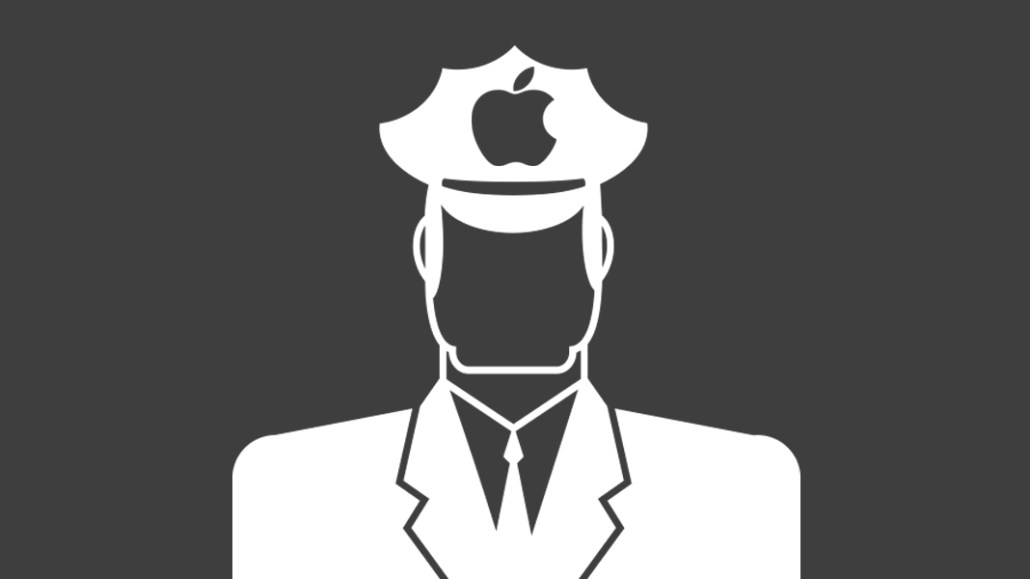
Apple is turning iPhones into individual walled gardens, with new features that will curtail companies’ abilities to track people through their mobile devices.
The next major update of Apple’s iOS mobile operating system will include new privacy-related features to limit the information flowing from people’s phones to advertisers, publishers and ad tech firms. Announced on June 3 at Apple’s Worldwide Developers Conference, the new features are expected to officially roll out later this year and continue Apple’s efforts to limit third-party tracking on its devices.
The key points:
- Apple’s single sign-on feature will limit apps’ and sites’ abilities to collect logged-in users’ email addresses.
- Apps that use other companies’ single sign-on features will be forced to adopt Apple’s.
- Apple will make people more aware of apps that are tracking their locations and give them a new option to limit that tracking.
- Companies will not be able to use phones’ wifi and bluetooth connections to track people’s location.
How Apple’s single sign-on feature will work
Companies like Facebook and Google allow people to sign in to third-party apps and sites using their Facebook and Google accounts, which enables the two companies to track what people do in those apps. Apple doesn’t like this kind of tracking, so it has developed its own single sign-on feature.
Like Facebook’s and Google’s single sign-on tools, “Sign in with Apple” will give people a way to log into apps using their Apple accounts. This enables an app to keep track of how someone used an app, such as maintaining their order history, without the person having to register a new, app-specific account (and needing to remember a new, app-specific password).
However, Apple’s sign-on tool will enable people to disguise their identities to the app developer. If an app asks to access a person’s email address in order to send them order confirmations or promotional messages, the person can have Apple create an anonymous email address to send to the app. Then when the app sends emails to that random address, Apple will forward them to the person’s actual email address.
What Apple’s single sign-on feature means for advertisers and publishers
Apple’s single sign-on feature can be problematic for companies trying to own their app audiences. If people elect to sign in to an app with their Apple accounts without sharing their actual email addresses, that would hinder companies’ ability to use their apps to build up their email databases in order to establish direct relationships with customers. For advertisers and publishers in particular, email addresses are used as an identifier to target people with ads, such as by matching an advertiser’s email database with a publisher’s to serve ads to the publisher’s audience members who are or are not customers of the advertiser.
Apple’s single sign-on feature could significantly affects apps because Apple will require apps to adopt the feature if an app supports other companies’ single sign-on tools, according to Apple’s updated App Store review guidelines; it’s unclear whether Apple will make a similar demand of sites. That requirement would make it more likely that people would sign in to apps with their Apple accounts.
How Apple will limit location tracking
Apple is raising the bar for apps to collect people’s information, according to The Washington Post. First, Apple will introduce a new location sharing option for people to require apps to request their locations each time an app wants to access that information. Additionally Apple will make it more obvious to people when an app running in the background continues to track their location. Finally, Apple will disable companies from using a phone’s wifi or bluetooth connections to track its location.
What Apple’s location tracking limits mean for advertisers and publishers
Overall companies stand to lose access to people’s location information. With the new one-time sharing option and the background tracking alerts, apps won’t be able to count on gaining a person’s consent to track their location once and being able to persistently monitor their location from there on out, even when a person isn’t actively using the app.
However, the bigger impact will likely stem from Apple’s move to disable wifi- and bluetooth-based location tracking. Companies monitor the wifi networks and bluetooth devices that a phone pings in order to triangulate their location. A person doesn’t actually have connect to a wifi network or bluetooth device in order for a company to track them this way, though their phone does need to have wifi and/or bluetooth turned on and location services enabled. This method enables companies to know if someone is in a given area and to use that information to serve them ads and to evaluate the impact of ads that they have been served. For example, companies like Facebook have had retailers plant bluetooth beacons in their brick-and-mortar stores in order to track foot traffic and retarget store visitors with ads online. By disabling this kind of location tracking, Apple could potentially put a serious dent in location-based advertising, or at least ad tech vendors that use wifi- and bluetooth-based tracking to create audience segments and measure ads’ impact.
More in Marketing

YouTube’s upmarket TV push still runs on mid-funnel DNA
YouTube is balancing wanting to be premium TV, the short-form powerhouse and a creator economy engine all at once.

Digiday ranks the best and worst Super Bowl 2026 ads
Now that the dust has settled, it’s time to reflect on the best and worst commercials from Super Bowl 2026.

In the age of AI content, The Super Bowl felt old-fashioned
The Super Bowl is one of the last places where brands are reminded that cultural likeness is easy but shared experience is earned.





